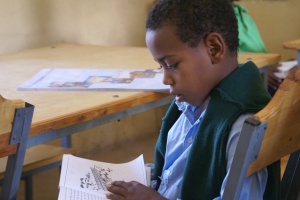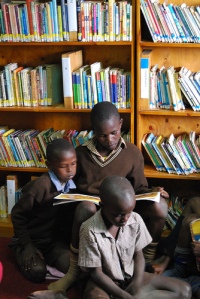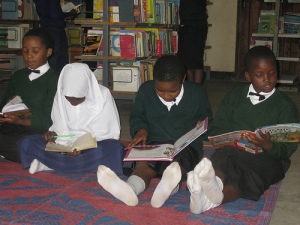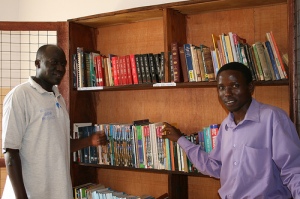Clive Nettleton, our director of Book Aid International, reflects on an evaluation and partnership building visit to Kakuma in 2008.
“Kakuma refugee camp isn’t one of those places conjured from TV images. No rows of tents with a feeling of desperation and humanitarian agencies running feeding programmes. No television cameras recording an unfolding drama of movement, starvation and despair. Kakuma looks more like a huge urban slum, a Soweto or Kibera deposited in a remote rural area. It houses 70,000 or more refugees: Sudanese, Somalis, Ethiopians, Congolese, Eritreans, Ugandans and a smattering of others washed up from decades of conflicts in the region. In Swahili Kakuma means ‘nowhere’ and it is at best a transit for somewhere else and at worst a place in which you are stuck for long, soul-destroying years.
Visiting the camp a couple of years ago, I was struck how people living there survived in the way that poor people in rural Africa do survive.
Despite everything life goes on and people make a life, but it is temporary, and sustained by dreams of moving somewhere better or returning home. There is little beyond survival. But the library started by a hugely energetic group of Ethiopian refugees most of whom had moved on was an oasis of peace and learning. In that oasis, as one Somali man told me “we are all brothers” and he thanked his erstwhile enemies of decades ago, the Ethiopians for their efforts. “We get food and shelter here,” he said, “but the library provides food for our brains.” And, I reflected, it is a huge contribution that Book Aid International makes in providing the books that fill this library. It won’t change the world, but it certainly changes the lives of many thousands of people living ‘nowhere’.”





















